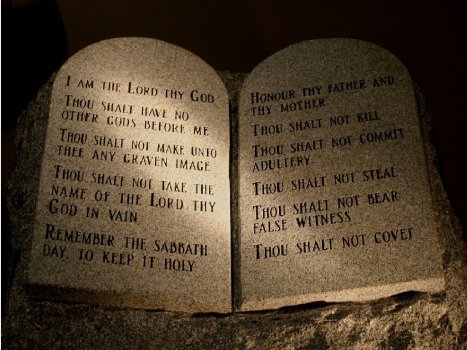It seems that you (and the majority of the church) are making general statements about what was intended as specific statements.The Bible warns me against myths, so I exclude them in my worldview.
"The Bible contains several exhortations against myths and fables, emphasizing the importance of adhering to the truth of God’s word. Here are a few key passages:
These passages collectively underscore the importance of focusing on the truth and avoiding distractions that can lead believers away from their faith. They encourage a commitment to the teachings of Jesus and the apostles, which are based on eyewitness accounts and divine revelation." [Copilot]
- 2 Peter 1:16: "For we did not follow cleverly devised fables when we made known to you the power and coming of our Lord Jesus Christ, but we were eyewitnesses of His majesty"1. This verse highlights the apostles’ commitment to sharing their direct experiences with Jesus, rather than relying on fabricated stories.
- 1 Timothy 1:4: "Nor to devote themselves to myths and endless genealogies, which promote speculation rather than the stewardship of God’s work, which is by faith"2. Paul advises Timothy to avoid engaging in myths and genealogies that lead to fruitless discussions and distract from the work of faith.
- Titus 1:14: “And will pay no attention to Jewish myths or to the merely human commands of those who reject the truth.” This verse warns against being swayed by myths and human traditions that deviate from the truth of the gospel.
Here, Jesus is not a mythical character, but real flesh and blood. The stories about a real person can be embellished. We do it all the time.2 Peter 1:16: "For we did not follow cleverly devised fables when we made known to you the power and coming of our Lord Jesus Christ, but we were eyewitnesses of His majesty"1. This verse highlights the apostles’ commitment to sharing their direct experiences with Jesus, rather than relying on fabricated stories.
"Just the facts, Mame."
Not engaging, but devoting.1 Timothy 1:4: "Nor to devote themselves to myths and endless genealogies, which promote speculation rather than the stewardship of God’s work, which is by faith"2. Paul advises Timothy to avoid engaging in myths and genealogies that lead to fruitless discussions and distract from the work of faith.
Jewish myths specifically.Titus 1:14: “And will pay no attention to Jewish myths or to the merely human commands of those who reject the truth.” This verse warns against being swayed by myths and human traditions that deviate from the truth of the gospel.
Paul used Jewish myth in his writing. See below.
This is a Jewish myth used to make a point.
Does the biblical account say that the rock from which
water came forth at the beginning of the wilderness wanderings
followed them for 40 years? Or is it myth?
1 Corinthians 10:3-5 NIV
They all ate the same spiritual food
4 and drank the same spiritual drink; for they drank from the spiritual rock that accompanied them,
and that rock was Christ. 5 Nevertheless, God was not pleased with most of them;
their bodies were scattered in the wilderness.
[


